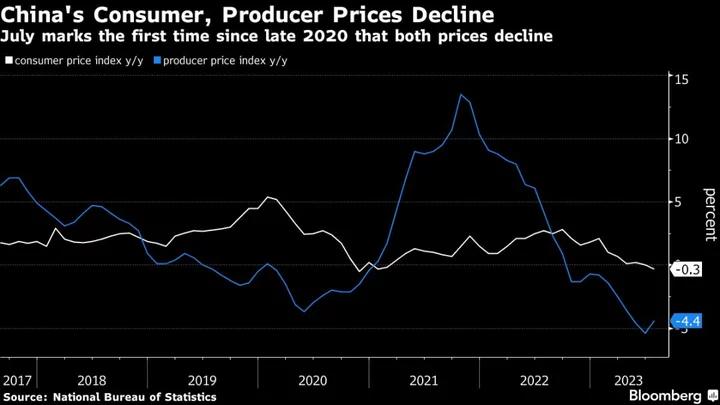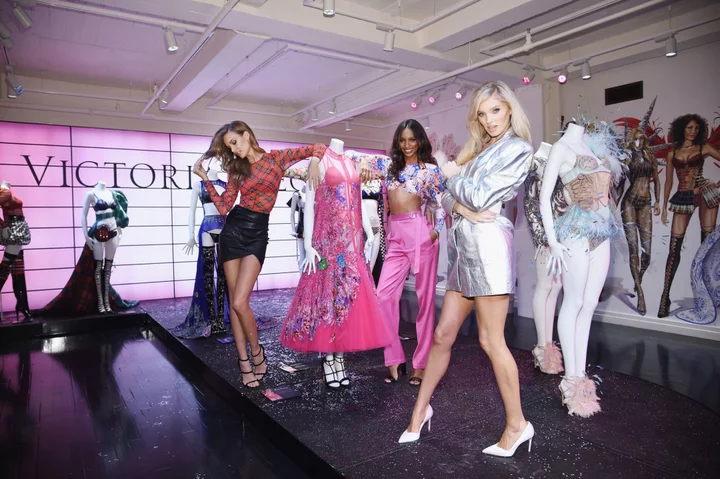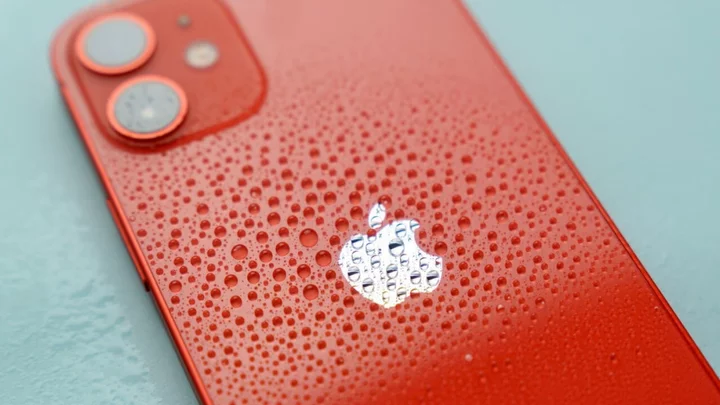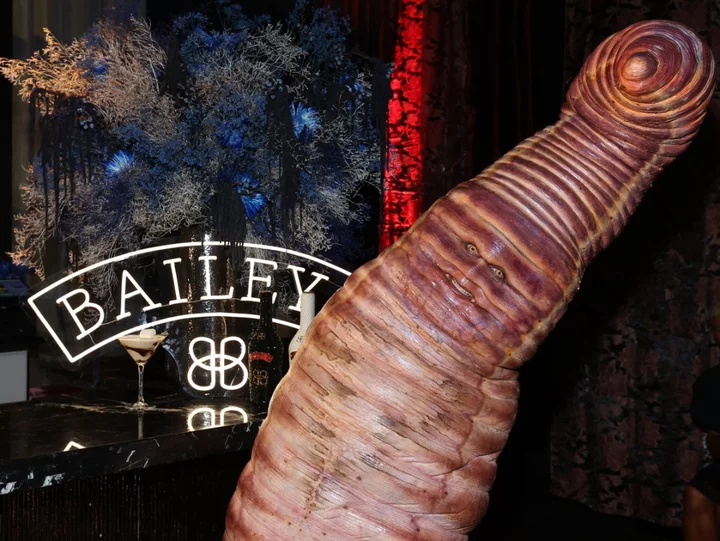From beauty products to beverage makers, some of China’s top brands are turning cautious on the world’s second-biggest economy as a growing list of headwinds point to consumers tightening their belts.
The start-of-year reopening boom has fizzled as concerns about a property market slump to record youth unemployment prompt Chinese to be more circumspect in their spending, pushing household savings to a record.
According to official data released Tuesday, non-essential and big-ticket items are the first being struck off shopping lists: increases in clothing and sporting-good sales are waning, while for cosmetics, jewelry and home electronics, they’re contracting.
The few bright spots — double-digit growth for the restaurant and catering sector, and resilient demand for food — point to enduring changes in consumer tastes, with more of a focus on spending on experiences. That’s supported by commentary from major consumer brands, with robust first-half earnings sometimes masking diverging views on the outlook.
“The recovery in China is mixed, held back by weak consumer confidence and higher unemployment,” Unilever Plc Chief Financial Officer Graeme Pitkethly said on an earnings call last month. It’s hurting the rebound in the personal care and beauty businesses, even as the food services sector grows, he said.
L’Oreal SA Chief Executive Officer Nicolas Hieronimus described the recovery as slower than expected, nothing that “three years of Covid will take a bit of time to be fully digested.” A slew of Wall Street analysts downgraded Estée Lauder Cos. ahead of its earnings report on concerns around a prolonged recovery in China.
Changing Tastes
Drinks have also emerged as a mixed bag. Retail sales figures show the pace of growth in the beverages category eased slightly in July, while the alcohol and tobacco sector registered a more notable weakening.
Swire Pacific Ltd., which has the exclusive right to manufacture and distribute Coca-Cola products across China, said it expects the sales and operations of its mainland drinks business to be adversely affected by the economic slowdown in the second half. Budweiser Brewing Co. APAC Ltd. CEO Jan Craps described beer as a resilient category due to its perception as an affordable luxury.
“Spending behavior has changed, especially for the country’s younger population,” said Dickie Wong, director of research at Kingston Securities Ltd. “The country’s economic outlook is gloomy, many couldn’t find dream jobs after graduation, so why bother planning and saving to buy a house or a car? We see the trend of people more willing to spend on travel, go to hotpot, drink with friends and buy clothes — the sense that you only live once.”
What Chinese splash their cash on is critical to the economy and Beijing has detailed a series of measures to get people to open their wallets. But the latest disappointing retail sales data highlight those efforts aren’t enough to address the core problem of a lack of confidence. The government’s focus on getting consumers to buy items like furniture and home appliances is also complicated by stress in the property market.
While that’s prompted a growing chorus of calls for officials to roll out more targeted stimulus, authorities have so far indicated they’re not seriously considering handing out cash direct.
Read more: PBOC Adviser Says China Urgently Needs to Boost Consumption
Already, companies are looking at how to drum up business from an increasingly price sensitive population.
Chinese KFC and Pizza Hut store operator Yum China Holdings Inc. is set to roll out promotions and marketing campaigns after a softening in demand in May. Chow Tai Fook Jewellery Group Ltd. attributed its China sales decline in early July to having fewer discounts, and shoppers may seek more gold items as economic uncertainties boost demand for havens, Bloomberg Intelligence said in a report. Cosmetic firm Shiseido Co. is hoping product launches will build on strong first-half growth in the mainland.
And although most people aren’t switching to cheaper brands, almost half surveyed by McKinsey & Co. say they buy from channels where they can find preferred brands at lower prices or on sale, according to a July report. Electronics and household items are low on people’s list of intended purchases, possibly due to a decline in property transactions and a reluctance to spend on higher-ticket, non-essential items, it said.
Bulls Persist
But even with growing caution over the economy, most firms are sticking to bullish outlooks for China longer term. A primary driver is the country’s wealthy, meaning high-end brands are performing particularly strongly, according to alternative data provider Sandalwood Advisors.
Prada CEO Andrea Guerra said during an earnings call in July that the firm has more opportunities in China. Yum has accelerated store openings and is on track for 1,100 to 1,300 net new stores in the full year, while Starbucks Corp. said it continues to “invest ahead of the curve.”
The question about whether companies need to reassess the growth outlook in China “is too early to ask” McKinsey senior partner Daniel Zipser said.
“What I believe companies should do, though, is to think not just what it takes the next six to 12 months, but to think through what can they do now to secure growth for the next three to five years,” he said. “Investing in talent, investing in more sustainable brands and avoiding some of the overly promotional activities.”
--With assistance from Irene Huang and Shirley Zhao.









